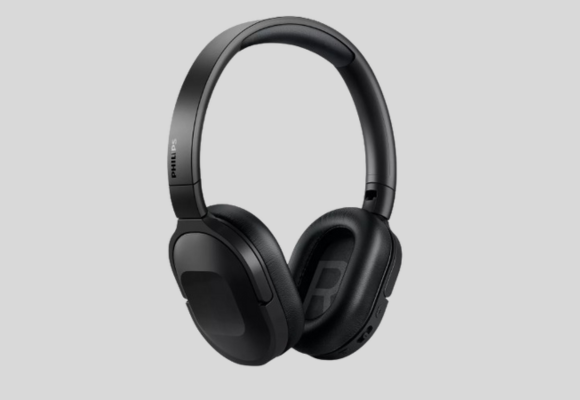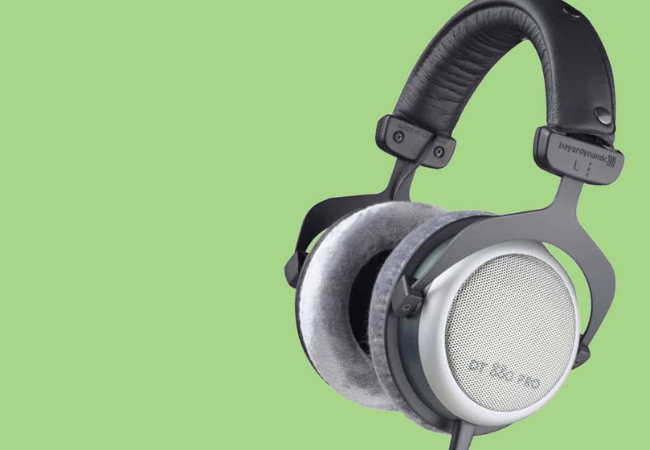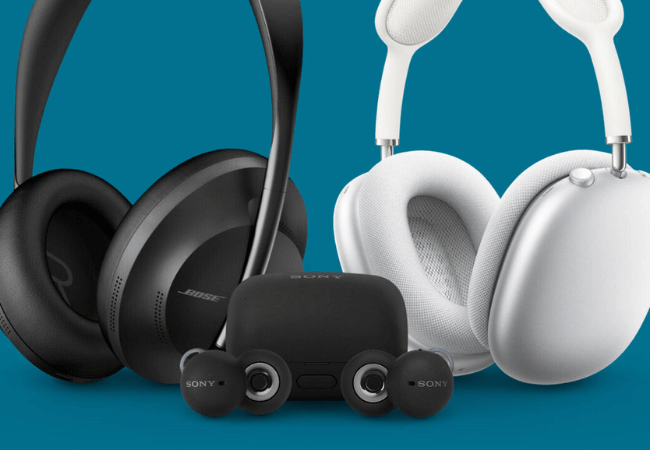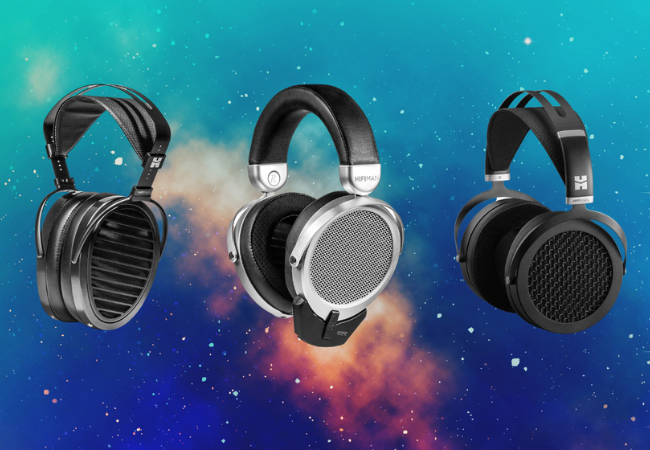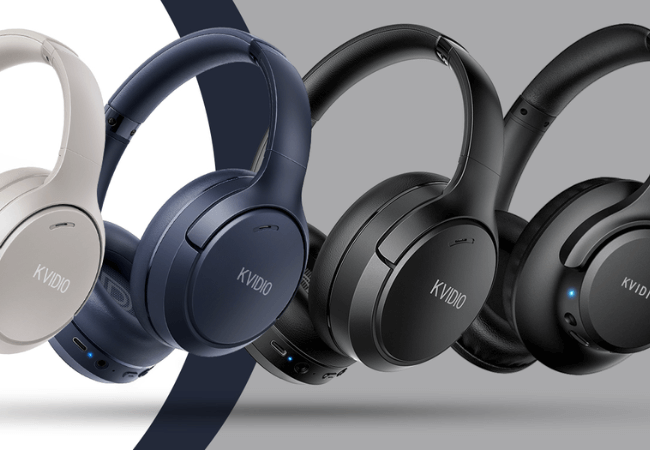In today’s noisy environments, noise-canceling headphones are a valuable tool to end the ongoing battle between external sounds and headphones. These headphones block out all background noise, but the concerned question regarding them is whether noise-canceling headphones protect hearing.
An emerging serious threat currently prevailing is hearing loss, which is exponentially growing, and a reason for it is the use of headphones. In recent years, the popularity and utilization of noise-canceling headphones have been skyrocketing, with the headphones no longer remaining a luxury item but a common household item.
Regardless of the convenience of noise-canceling headphones, they can also have detrimental effects on hearing health. Therefore, we will consider whether noise canceling headphones protect hearing and dive into exploring their effectiveness for protecting hearing!
Do Noise Canceling Headphones Protect Hearing
If you are thinking of using noise canceling headphones in shops or labs to listen to music while working, especially to protect your hearing from extraneous sounds, put that thought on hold!
When it comes to noise canceling headphones protecting hearing- NO, they do not. Noise canceling headphones will not protect your hearing because this is not how these headphones are designed, nor are they intended to serve the purpose of preserving hearing health.
Though noise-canceling headphones and hearing protection may look the same, in reality, a significant difference lies between both the devices, and not in any case, they are similar.
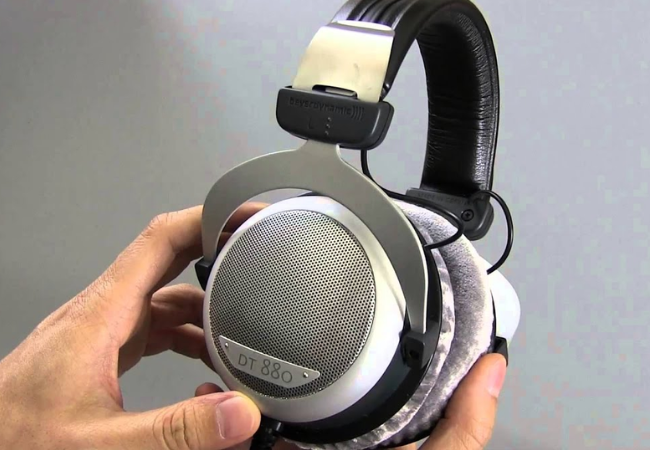
While noise protection devices aim to eliminate the sound that reaches your ears, noise canceling headphones only reduce the amount. They will not necessarily protect against loud noises even when you maximize the audio volume on your device.
Design Of Noise Canceling Headphones
The design for noise canceling headphones is such that it is not ideal to use them to control and block occupational noise exposure because the headphones have not been manufactured to fulfill this task effectively.
Noise-canceling headphones are only made to block any unwanted ambient external sounds, and this happens through active noise control, controlling for low-frequency sounds. Whereas for high-frequency sounds, soundproofing is used.
Wearing noise-canceling headphones instead of proper hearing protection is only to act to your own detriment consensually. This is because, eventually, the continuous use of noise-canceling headphones can cause permanent hearing impairment as no occupational noise is being accounted for, and all of it reaches your ears in their original frequencies along with the audio being played within your earbuds.
Likewise, while listening to music or podcasts on your noise-canceling headphones, there is a likely chance for you to be distracted, which could result in potential incidents in the workplace.
So, in all its essence, the answer here for whether noise canceling headphones protect hearing is evident, and sufficient evidence proves that these headphones protect hearing health to be a myth!
Types Of Noise Canceling Headphones
There are two prominent types of noise canceling headphones- passive and active noise canceling headphones. These noise-canceling headphones have been created with differentiated purposes to counter varied frequencies and distinct kinds of sounds.
Consequently, how these two noise-canceling headphones protect your hearing is also distinguished.
Passive Noise Canceling Headphones
Passive noise canceling headphones essentially offer all its users a soundproofing of external noise through their heavy-duty design. They function in the same manner as an ear plug but with the exception of having an in-built speaker.
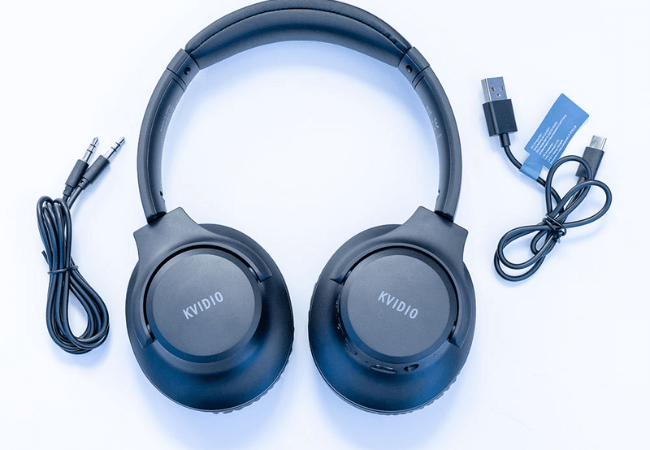
The headphones typically have an in-ear “bud” that penetrates through the ear canal and is surrounded by a soft silicone seal, blocking any noise from entering the ear with the silicon seal absorbing some sound waves.
Though the tight fitting of the passive noise canceling headphones may feel heavy on the ears, rest assured, these earphones are very efficient at drawing and blocking out sound. Precisely, sounds that are explosive and transient, such as firecrackers and gunshots, or are high frequency, such as dog howling or baby crying, are the most successfully countered by the passive noise canceling headphones.
However, the characteristic of noise canceling headphones reducing the noise reaching your ears by a decent amount, should not be mistaken as the headphones protecting your hearing.
At the end of the day, these earbuds do not have a certified noise reduction figure or an SNR rating and have highlighted differences with verified hearing protection.
Active Noise Canceling Headphones
Active noise-canceling headphones erase external sounds through their sound-matching technology. They are the most functional in those settings, whereby the volume and the overall sound remain constant.
The headphones work by recognizing the pitch of any ambient sound in the surroundings, for example, the cumulative hum of a crowded coffee shop or a jet engine’s whir, and then producing sound canceling waves that are out of phase at an angle of 180 degrees.
This procedure of identifying sounds and producing waves takes some time, as the active noise canceling headphones must first adjust to the setting.
Now, with the blocking of any external ambient noise, you do not have to purposely listen to music loudly because active noise-canceling headphones will protect your hearing, but only to a certain extent.
Again, you are not guaranteed to damage your hearing with these headphones. Even though some protection is offered against the outside noise, the noise inside the headphones through loud music is bound to damage the inner ear by harming the cells of minuscule sensory hairs that transmit all auditory signals to the brain.
Therefore, you should not use active noise canceling headphones when there are explosive or sudden sounds because the headphones will not combat these sounds. Also, keep the volume of the playing music low to prevent the inner ear’s hair cells from being damaged.
Passive Vs. Active Noise Canceling Headphones
There is a long-held debate about whether passive noise canceling headphones are better than active noise canceling headphones. The point that needs to be understood here is that both these headphones are great options, but their use will only be idealistic in certain situations.
In the scenario where you are looking to shield your ears from high-frequency or explosive sounds, passive noise canceling headphones will be the perfect option. Active noise canceling headphones demand time before reliably identifying and matching external sounds, which does not make them protective and adjust to fleeting sounds.
High-frequency and explosive sounds require immediate protection, and that is offered instantly by passive noise canceling headphones.
Alternatively, if you want to mute the constant buzzing of busy streets, public transportation, and crowded offices, the most beneficial outcome will be using active noise canceling headphones.
Subsequently, the outside noise reaching your ears will be minimized. You can also enjoy listening to your music at lower volumes, ensuring that your ears are offered maximum protection against all kinds of external and internal sounds.
However, at all times, you must remember that noise canceling headphones, whether they be passive or active, efficient or non-efficient, blocking out high-frequency or low-frequency sounds, are not hearing protection devices.
They cannot be depended on for protecting hearing health, and you must not leave the protection of your ears with them at chance.
An optimal level of protection that could hypothetically be offered by noise canceling headphones will be when the noise canceling qualities of passive and active are both combined, but unfortunately, this is not a possibility and something yet to happen.
Additionally, it is worth noting that noise-canceling headphones are not the preferable choice for listening to music, especially when conducting any outdoor activity: exercising, gardening, biking, running, etc., because you then cannot pay attention to the surroundings.
How To Protect Hearing?
We have unraveled the truth about do noise canceling headphones protecting hearing, and the outcome of it has not been in favor of noise canceling headphones. So, if this is not your way of hearing protection, what is, and how to protect hearing?
There are several measures that you can undertake apart from employing a noise canceling headphone to protect your hearing, and they are listed as the following:
Regularly Get Tested
The thing about hearing loss is that it is subtle and gradual. You will not notice it happening until and unless one day it will materialize out of nowhere, leaving you shocked, but again, the process might have been in play for decades.
Our brains are keen on adapting to the occurrence of hearing loss, and this adaptation may have been in play for a long time; hence, it is vital to track this adaptation, and the right way to do so is by getting yourself regularly tested for hearing, especially if you are exposed to an extremely noisy surrounding on a daily.
A baseline hearing assessment will track your hearing loss over a defined span, and every time you get assessed, the results will be compared to the past tests; this is how you can monitor your hearing health.
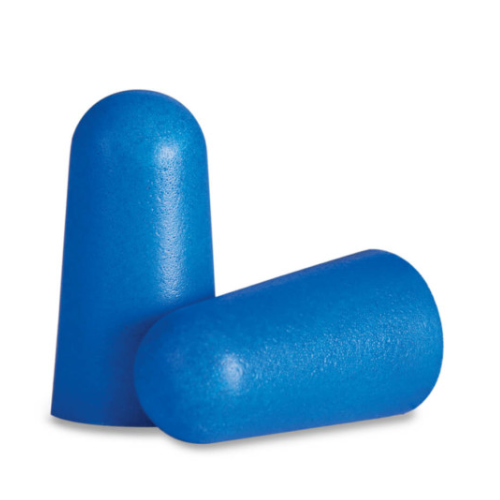
SIMPLE FOAM PLUGS
If you want to maintain long-lasting hearing protection, consider using foam earplugs ((foam, pre-molded, molded)). Simple earplugs with slow-release foam properties are a good choice. They are easily available on the market at an affordable price, and this makes them a frequent choice for many people. The primary goal is to avoid noise that can be harmful while ensuring safety for the ears.
When you insert them into your ear, the foam expands to fill the ear canal, so it’s important to ensure they fit securely. Once comfortably in place, they work to block out noise, reducing sound transmission to your ears and providing a comfortable level of noise reduction.
Avoid Loud Sounds
When we ask you to avoid loud sounds, we are not implying you to avoid listening to music loud on your AirPods, earbuds, or headphones, but also; generally, you should be fleeing situations where there could be the potential of you encountering high-pitched and high-frequency sounds.
Likewise, the volume at which you watch TV and attend phone calls must also be kept at a minimal level, and this is a simple way not to reduce hearing loss but to postpone it.
Do Not Put Anything In Ears
Nothing should be penetrating or going inside your ears. Particularly, steer clear of cleaning your ears with cotton swabs. Superficially, it may seem as if the cotton swabs are getting rid of the dirt and wax, but in reality, it is pushing the wax further into the ear and against the eardrum to puncture it.
Hearing Protection
Just because an activity is not “loud enough” does not mean it will not damage your ears. Lawnmowers and power tools agreeably are not as loud (Almost smiler with busy city streets) as gunshots or rock concerts, but this does not mean that they will not have a negative effect on your hearing potential over time.
Overtime exposure to the grinding noise of these machines or others can result in massive damage to hearing abilities, so it’s best if you always wear hearing protection. Even if the activity is not “that loud” in your point of view, it is always to be safe than sorry later, so wear hearing protection!
Consider Hearing Needs
Do not be hesitant or ashamed of addressing your hearing needs. Tackling any problem in its early stages can stop it from deteriorating further. Thereupon, if you ever find yourself needing any assistance for hearing, unashamedly ask for it.
Consult an ear specialist or your doctor to consider your hearing needs and determine what kind of hearing aid you need. Fortunately, hearing aids are now easily and readily available; buying one has never been quicker than in contemporary times.
Do not live with hearing loss; get yourself the hearing help you need and seek a hearing aid as a solution!
wrap it up
We have evaluated the question which wonders most people “Do noise canceling headphones protect hearing?” in multiple layers by examining the two types of headphones and their effectiveness. There is no doubt that noise canceling headphones are great and a viable option for reducing extraneous sounds and introducing personal sounds. However, none of these facts stand as an affirmation for the headphones to effectively protect hearing.
Frequently Asked Questions
Can you use noise-cancelling headphones as hearing protection?
No, you cannot use noise canceling headphones as hearing protection because the design of the headphones is different from that of a hearing protection.
Does noise-cancelling protect your ears from loud noises?
Noise-canceling headphones do not protect your ears from loud noises, but they really reduce the amount of noise that reaches the ears.
Does noise-cancelling reduce decibels?
Yes, noise canceling headphones reduce decibels of incoming sounds by 30dB, reducing any potential harmful noise exposure.
Do noise-canceling headphones block occupational noise?
Noise-canceling headphones will not block any occupational noise and will keep reaching the ears, damaging hearing health.
